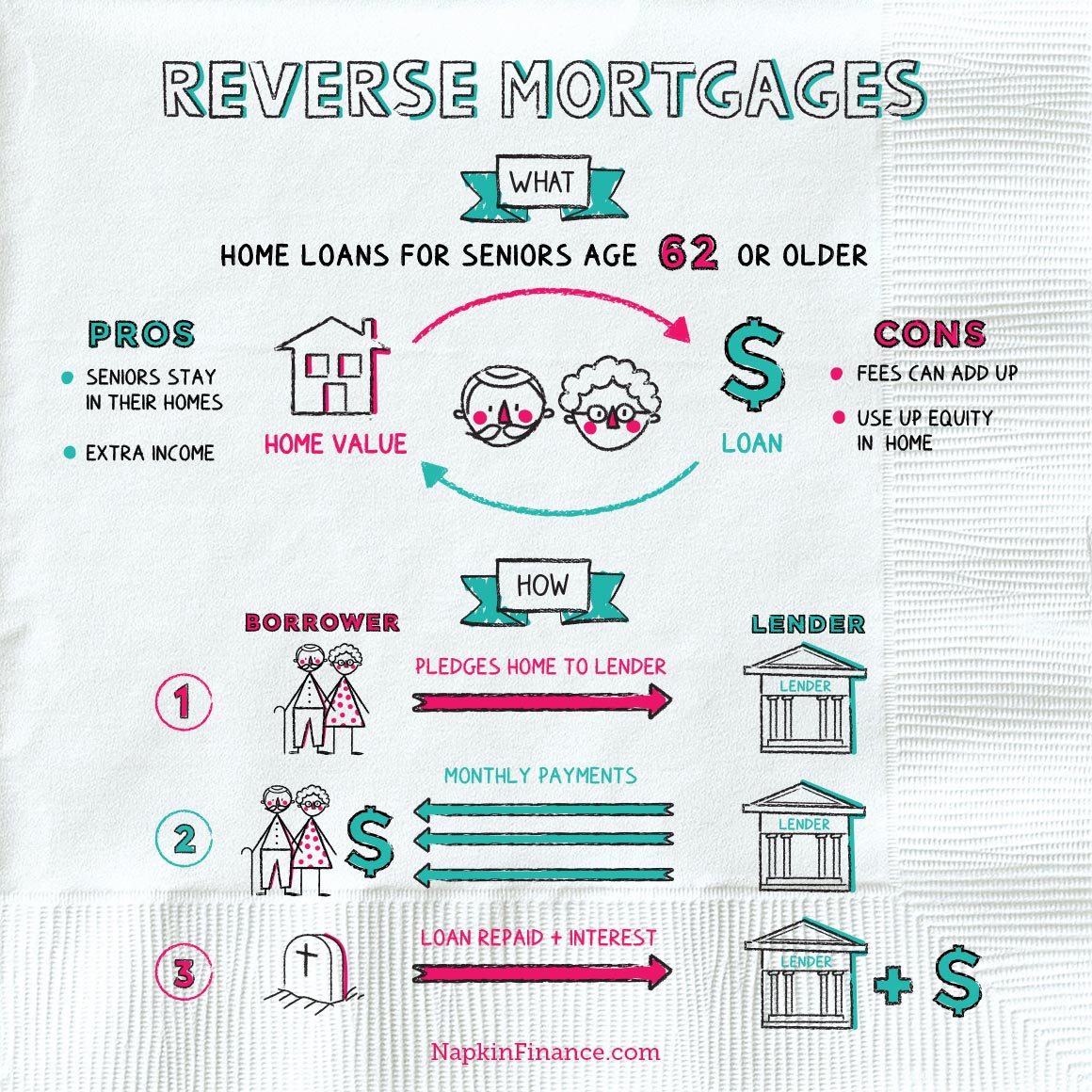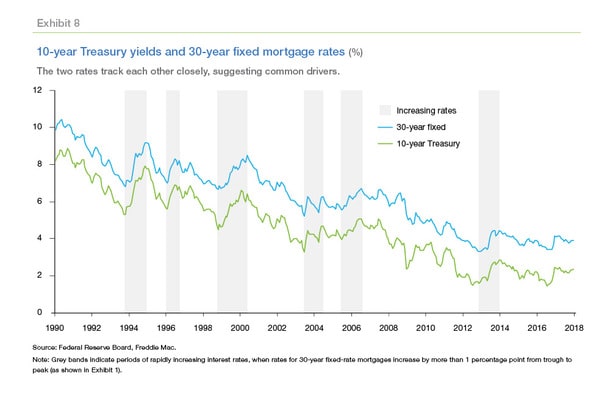Initially, let's discuss what a reverse home mortgage is. A reverse home mortgage is designed to permit senior older homeowners who own all or the majority of their residential or commercial property to withdraw some of the equity from the house for individual use Recipients can pick to receive the money as a swelling amount, in monthly installments, or as a credit line.
As it is just available to citizens over the age of 62, it is implied to be the last loan a person will get on their home in their lifetime. A reverse mortgage should be paid back when the home stops to be the loan recipient's main residence. This can happen when the recipient relocations, scales down, has actually been in the medical facility for over a year, or dies.
Usually, one of 4 things happens: 1. The recipient's life insurance policy is used to settle the balance of the reverse mortgage. 2. The recipient's heirs offer the residential or commercial property and use the proceeds to pay off the balance. If the residential or commercial property costs more than the loan was worth, the heirs keep the remaining equity.

3. The recipient's successors refinance and take out a new home mortgage on the home in order to keep the property. (It is possible to have both a reverse mortgage and a regular home mortgage on the exact same residential or commercial property, as long as the regular mortgage has a low loan balance). 4. If the beneficiaries take no action within the allocated time period, the bank will foreclose on the house to recover the loan.
The Only Guide for What Percentage Of National Retail Mortgage Production Is Fha Insured Mortgages
Make certain to look thoroughly at the regards to a reverse home loan before taking one out, as some loans can carry high fees and rate of interest.
If you secure a reverse mortgage, you can leave your house to your successors when you pass away, however you'll leave less of a possession to them. Your successors will also require to deal with repaying the reverse home loan, and they might deal with major issues while doing so, otherwise the loan provider will foreclose.
A "reverse" home mortgage is a specific kind of loan in which older property owners transform some of the equity in their home into money. The money is usually distributed in the kind of a lump sum (topic to some constraints), month-to-month quantities, or a line of credit. You can likewise get a mix of monthly installations and a line of credit.
This type of loan is various from routine "forward" home mortgages because with a reverse home loan, the lending institution makes payments to the homeowner, instead of the property owner paying to the loan provider. Because the homeowner receives payments from the lender, the house owner's equity in the property decreases gradually as the loan balance gets bigger.
What Percentage Of People Look For Mortgages Online Can Be Fun For Everyone
With a HECM, the loan has actually to be repaid when one of the following events takes place: the borrower passes away the home is no longer the borrower's primary residence (or the borrower leaves completely or leaves due to health factors for 12 consecutive months or longer) the customer offers the home (or transfers title), or the debtor defaults on the regards to the loan, like by stopping working to keep up with insurance coverage premiums or real estate tax.
However they won't receive title to the residential or commercial property free and clear because the property is subject to the reverse mortgage. So, state the homeowner passes away after getting $150,000 of reverse mortgage funds. This means the successors acquire the home topic to the $150,000 debt, plus any costs and interest that has accrued and will continue to accumulate till the financial obligation is paid off.
1. Repay the loan. (With a HECM, the beneficiaries can choose to repay 95% of the assessed value themselves and keep the home. FHA insurance coverage will cover the staying loan balance.) 2. Sell the home and utilize the earnings to repay the reverse mortgage. (With a HECM, the heirs can offer the house for the total of debt owed on the loan or an amount that is at least 95% of the existing assessed worth of the home.) 3.
4. Not do anything and let the lender foreclose. According to an U.S.A. Today post from December 2019, beneficiaries who want to pay off a reverse mortgage and keep the house frequently face months of bureaucracy and aggravation when dealing with the loan servicer. Substandard loan servicing practices frequently hinder what need to be regular paperwork, debt estimations, and communications with borrowers or beneficiaries.
Indicators on Which Of The Following Are Banks Prohibited From Doing With High-cost Mortgages? You Should Know
The servicer likewise designated the house as vacant and turned timeshare weeks 2019 off the water in the name of residential or commercial property conservation, and set up a foreclosure sale. This scenario is not uncommon. The U.S. Department of Real Estate and Urban Advancement (HUD), the regulator of HECMs, has standards that state servicers of these loans need to notify survivors and beneficiaries of their alternatives and resolve the loan within 6 months of a death.
If they're selling the residential or commercial property and it's still on the marketplace after six months, or they're still actively looking for financing, successors can contact the servicer and request a 90-day extension, subject to approval by HUD. One more 90-day extension can be requested, once again with HUD's approval. But that standards don't avoid the servicer from pursuing a foreclosure during this time.

While you face delays or obstructions due to a problem with the home's title, an approaching foreclosure, or an absence of info from the servicer, you'll need to spend for the home's upkeep, taxes, and insurance, and interest and fees will continue to accumulate on the debt while you try to work out any of the above alternatives (on average how much money do people borrow with mortgages ?).
Reverse home loans are made complex and are frequently not the very best alternative for older property owners seeking access to extra money. Prior to getting a reverse mortgage and tapping into your home equity, you need to make certain to check out all of the alternatives offered to you. For instance, you might certify for a state or regional program to reduce your bills or you might consider downsizing to a more cost effective house.
Not known Facts About There Are Homeless People Who Cant Pay There Mortgages
aarp.org/revmort. Even though you'll have to finish a therapy session with a HUD-approved therapist if you desire to get a HECM, it's also extremely suggested that you think about talking with a financial planner, an estate preparation attorney, or a consumer defense attorney before getting this type of loan.
Upon the death of the customer and Eligible Non-Borrowing Partner, the loan becomes due and payable. The beneficiaries have thirty days from getting the due and payable notification from the lender to purchase the house, offer the home, or turn the home over to the lending institution to please the financial obligation.
Your heirs can seek advice from a HUD-approved housing counseling firm or an lawyer to find out more. Some successors might lack funds to settle the loan balance, and might require to sell the home in order to pay back the reverse home loan. With a reverse home loan, if the balance is more than the home deserves, your heirs don't need to pay the distinction.